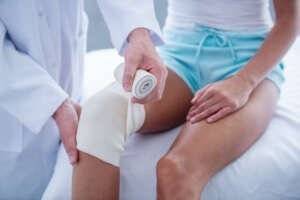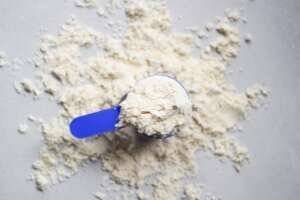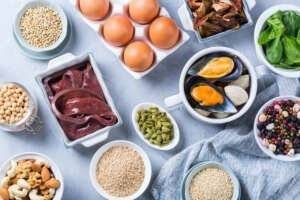Protein’s Role in Ligament Health
When considering the health and resilience of ligaments like the posterior cruciate ligament (PCL), factors like physical therapy and biomechanics often dominate the conversation. However, the importance of protein in maintaining and repairing ligaments is equally critical. Protein provides the building blocks for collagen, a structural component of ligaments, and aids in recovery and strengthening post-injury.

Understanding the Posterior Cruciate Ligament (PCL)
The PCL is a vital ligament that stabilizes the knee joint, working alongside the anterior cruciate ligament (ACL). It ensures smooth movements, such as walking and squatting, and prevents excessive motion between the femur and tibia. Injuries to the PCL often result from trauma or hyperextension, leading to instability and discomfort. While rest and rehabilitation are crucial, optimal recovery also depends on sufficient protein intake to support tissue repair.
Protein: Building Block of Ligament Strength
The PCL, like other ligaments, is primarily composed of collagen, which relies on protein for synthesis and maintenance. Dietary protein is broken into amino acids that rebuild and repair connective tissue, fortifying the ligament structure. A deficiency in protein can slow recovery and increase susceptibility to re-injury.

Key Amino Acids for Ligament Repair
- Proline: Essential for collagen production, proline supports tissue integrity. Found in egg whites, dairy, and meat.
- Glycine: Improves elasticity and resilience. Abundant in bone broth, fish, and gelatin.
- Lysine: Facilitates collagen cross-linking for strength. Found in red meat, poultry, and legumes.
- Hydroxyproline: Derived from proline, crucial for maintaining collagen stability. Found in collagen-rich foods.
Protein Requirements for Ligament Health
- General Guidelines: The average adult requires 0.8g of protein per kilogram of body weight daily.
- For Recovery: Those recovering from a PCL injury or aiming to enhance ligament strength may benefit from 1.2–2.0g of protein per kilogram of body weight, as recommended for active individuals.
Top Protein Sources for PCL Health

- Animal Proteins: Chicken, eggs, red meat, and fish provide complete amino acid profiles.
- Collagen-Rich Foods: Bone broth, gelatin, and collagen peptides directly support ligament repair.
- Dairy Products: Milk, yogurt, and cheese contribute to collagen synthesis through proline.
- Plant-Based Proteins: Legumes, quinoa, tofu, and chia seeds offer vegetarian-friendly options. Combining plant proteins ensures a complete amino acid profile.
- Supplements: Collagen peptides and whey protein are effective, especially during recovery.
Enhancing Protein Utilization
Protein intake alone isn’t enough—other nutrients are essential for effective collagen production:
- Vitamin C: Vital for converting proline into hydroxyproline. Sources include citrus fruits, bell peppers, and strawberries.
- Zinc: Aids tissue repair. Found in oysters, pumpkin seeds, and beef.
- Copper: Supports collagen cross-linking. Found in nuts, seeds, and shellfish.
Timing Matters
Distribute protein intake evenly throughout the day to maximize collagen synthesis. Post-exercise meals or snacks with protein can enhance tissue repair and reduce inflammation.
Incorporating Protein in Your Diet
- Start with Protein: Include eggs, Greek yogurt, or smoothies for breakfast.
- Snacks: Opt for nuts, seeds, or edamame.
- Collagen Boosters: Add collagen peptides to drinks like coffee or tea.
- Balanced Meals: Pair protein with whole grains and vegetables for complete nutrition.
Final Thoughts
Protein plays a pivotal role in maintaining and repairing ligaments like the PCL. Whether recovering from an injury or fortifying your knees for physical activity, prioritizing high-quality protein sources, combining them with essential nutrients, and timing your intake strategically can make a measurable difference in ligament strength and resilience. Integrating protein into your daily routine ensures a steady supply of nutrients, paving the way for healthier ligaments and improved joint function.
References
- Hijlkema, A. (2023). The impact of nutrition on tendon health and tendinopathy: A systematic review. Journal of the International Society of Sports Nutrition.
- Shaw, G., et al. (2017). Vitamin C-enriched gelatin supplementation before intermittent activity augments collagen synthesis. American Journal of Clinical Nutrition.
- Järvinen, T. A., et al. (2005). Muscle injuries: biology and treatment. The American Journal of Sports Medicine.


